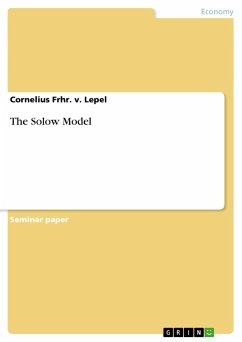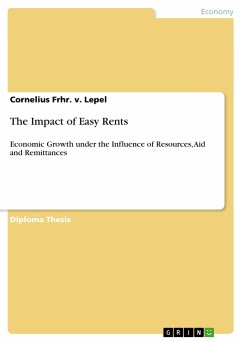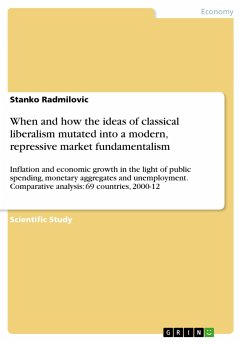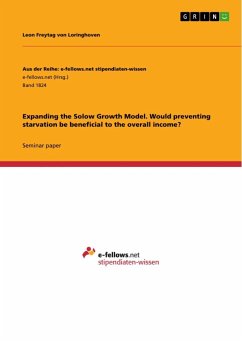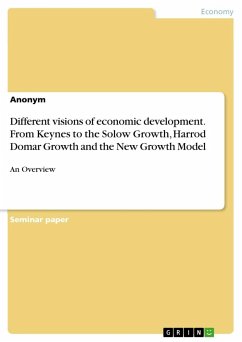Seminar paper from the year 2006 in the subject Economics - Macro-economics, general, grade: 1,3, Helmut Schmidt University - University of the Federal Armed Forces Hamburg (Professur für Allgemeine Volkswirtschaftslehre), course: Ausgewählte Fragen der makroökonomischen Theorie, language: English, abstract: This paper briefly examines the concept of economic growth and focuses on one of its most important theories: The Solow Growth Model. It starts of with a short insight to the importance of economic growth and its historical development and then moves on to the theoretical aspects and implications of the model itself. It can well be argued that the Solow Model is one of the most influential works regarding modern growth theory. Also it does not account for every factor today believed to have influence on economic development it basic principles are of empirical relevance and can be observed in the real economic world. Economists following Robert Solow have added to the model as well as criticised it, thereby giving much material for academic discussion and thinking. However this article will stick with the basic theory proposed by Solow himself and try to lay out the way it depicts and explains the process of economic growth. In order to give Solow's theories a place in the development of economic thinking, there is a short overview on his predecessors in the subject. Section 2 is dedicated to the latter purpose, while section 3 goes into the detailed examination of Solow's work.
Bitte wählen Sie Ihr Anliegen aus.
Rechnungen
Retourenschein anfordern
Bestellstatus
Storno

